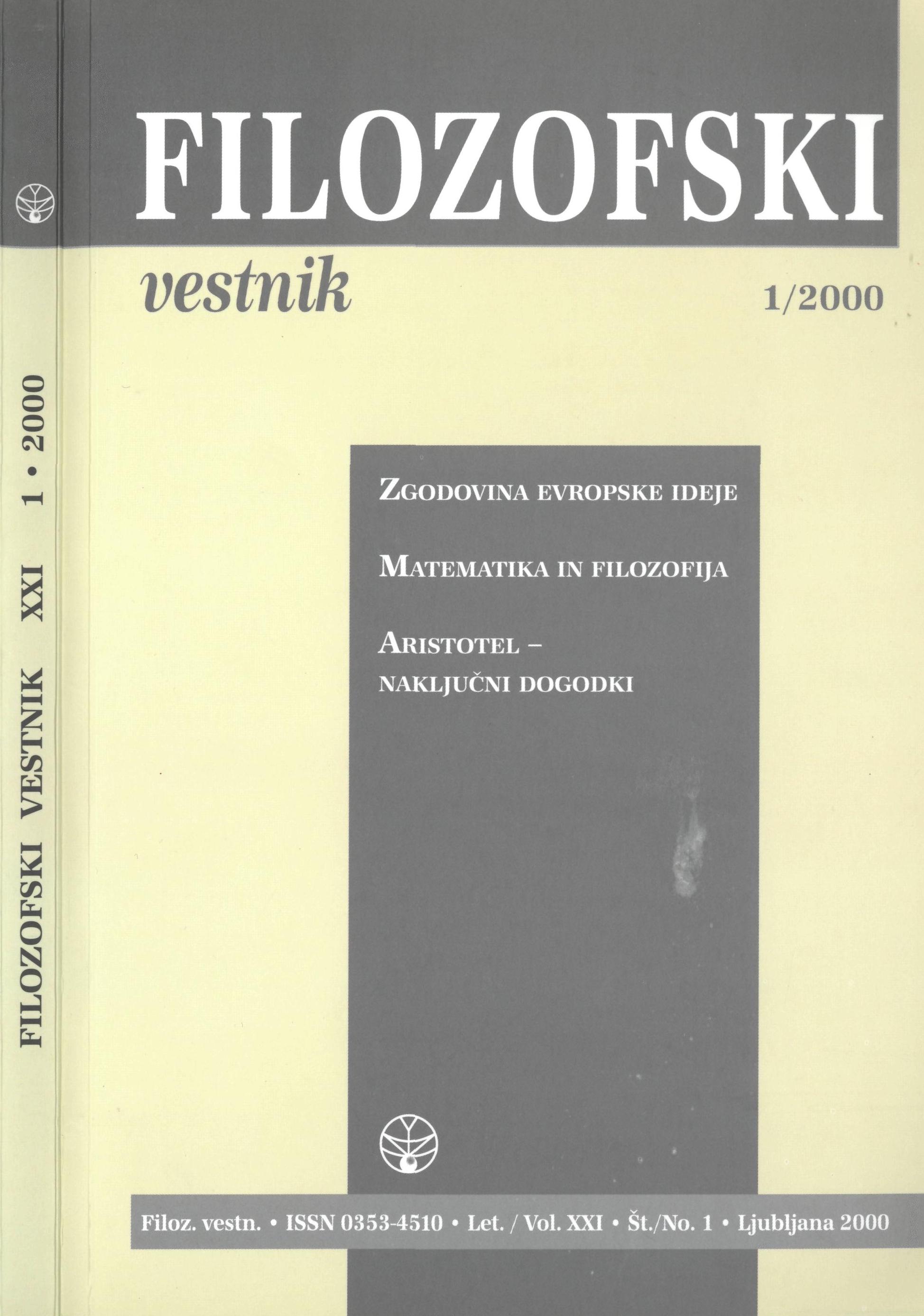Naključje in človeško delovanje v Aristotelovi Fiziki
Ključne besede:
naključje, “zaradi nečesa”, akcidentalnom, človeško delovanje, AristotelPovzetek
Aristotel v Fiziki 2.4-6 razpravlja o tako imenovanih naključnih dogodkih (ta apotuches) in jih definira kot dogodke, ki se zgodijo akcidentalno in ki so takšni, da bi se lahko zgodili zaradi razumskega človeškega delovanja. Dejstvo, da jim pripiše lastnost, da so “zaradi nečesa”, je najbolj sporno. Zagotovo ne obstajajo “zaradi nečesa” v istem pomenu, v katerem je “običajni” teleološki proces “zaradi nečesa”, tj. v pomenu, da je rezultat procesa odgovoren za njegovo pripetitev. Avtor v tem eseju predoči nekatere razloge, zakaj Aristotel vztraja, da so naključni dogodki dogodki “zaradi nečesa”. Pokazati poskuša, da je takšna označba naključnih dogodkov naravna posledica konsistentne rabe načel, ki jih Aristotel običajno priporoča filozofom narave. Avtor skuša tudi dokazati, da Aristotel dejansko potrebuje naključne dogodke, opisane na takšen način: da eksistenca naključnih dogodkov, ki jih opiše kot dogodke “zaradi nečesa”, potrjuje njegovo zaupanje v premoč teleološke razlage človeškega delovanja.Prenosi
Podatki o prenosih še niso na voljo.
Prenosi
Objavljeno
2016-01-17
Kako citirati
Grgić, F. (2016). Naključje in človeško delovanje v Aristotelovi Fiziki. Filozofski Vestnik, 21(1). Pridobljeno od https://ojs.zrc-sazu.si/filozofski-vestnik/article/view/3737
Številka
Rubrike
Aristotel - naključni dogodki
Licenca
Avtorji jamčijo, da je delo njihova avtorska stvaritev, da v njem niso kršene avtorske pravice tretjih oseb ali kake druge pravice. V primeru zahtevkov tretjih oseb se avtorji zavezujejo, da bodo varovali interese založnika ter da bodo povrnili morebitno škodo.
Podrobneje v rubriki: Prispevki





